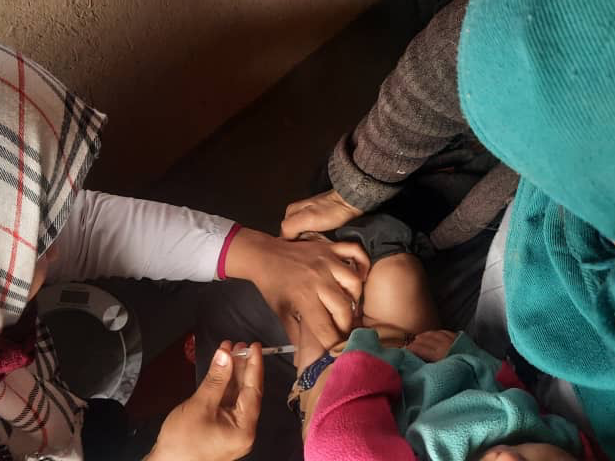In the mountains of northeastern Afghanistan, where a parent must walk hours with a sick child to reach a clinic, communities have long relied on visiting healthcare workers to provide basic services like vaccinations and vitamins to protect children from preventable illnesses.
Amidst a complex humanitarian crisis and increasingly unpredictable weather, even this minimal level of care has not been available to families in the most remote villages for years. It is estimated that tens of thousands of children under five in the region are undernourished and unvaccinated against polio, measles, tetanus, and other common illnesses.
Despite these barriers, Aga Khan Foundation (AKF) with the support of the Bill and Melinda Gates Foundation has successfully expanded the network of visiting healthcare workers to some of the most hard-to-reach communities in Takar, Kunduz and Baghlan provinces.
These clinics-on-wheels are providing nutritional support to women, newborns, and children under five years of age, and have boosted immunization rates to 90% of the national target in certain areas.

Administration of routine vaccine to under two children in Haji Hassan village-Baharka district of Takhar province, 2023
Drawing on deep experience in the region, AKF structured the project to address well-known challenges. Improved logistical and operational support means mobile teams can make better use of scarce resources, especially in emergencies. The project also trained vaccinators, doctors, nurses, midwives, and community members to improve the quality of nutrition and immunization services, and recruited back-up vaccinators to fill in during staff shortages.
In less than two years, AKF has demonstrated that with small and targeted investments, healthcare providers can reach the most marginalized and isolated communities and help children not only survive the early years but thrive.